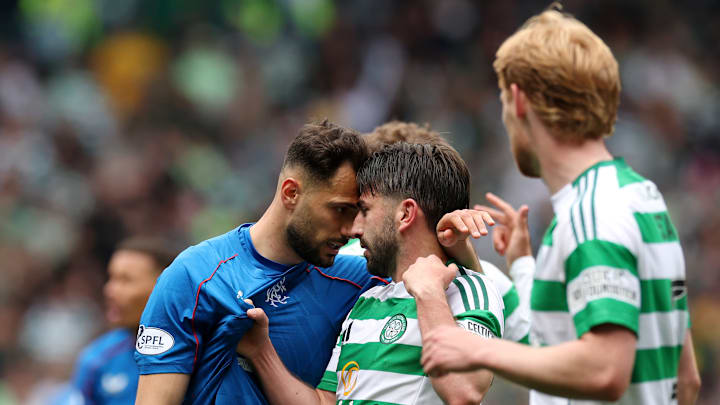Rangers face Celtic this Sunday in the Scottish League Cup semi-final at Hampden Park, and the build-up to this Old Firm clash is far from typical.
Rangers, now under Danny Röhl, are slowly rebuilding momentum after their worst league start since 1978 and the subsequent sacking of Russell Martin.
They arrive on the back of consecutive league wins for the first time this season and, for once, appear to have the more stable dugout.
Celtic, meanwhile, have been thrown into turmoil.
Brendan Rodgers’ sudden resignation was followed by a scathing response from majority shareholder Dermot Desmond, who publicly criticised the former manager, effectively branding him arrogant and dishonest.
In the wake of the fallout, 73-year-old Martin O’Neill has returned in temporary charge – just shy of 20 years after his departure from the East End.
On the pitch, Celtic have several injury concerns. Cameron Carter-Vickers and Jota remain long-term absentees, Alistair Johnston will not feature, and Kelechi Iheanacho is in a race to be fit.
Daizen Maeda is also short of full fitness and may have to settle for a place on O’Neill’s bench.
Despite their recent defeats to Dundee and league leaders Hearts, Celtic’s midfield remains a serious strength. Arne Engels, Reo Hatate and captain Callum McGregor are all expected to start and will look to dictate the tempo and take control.
With Connor Barron suspended, Nicolas Raskin and Mohamed Diomande are almost guaranteed to start for Rangers.
The more advanced midfield role is expected to be given to Thelo Aasgaard, who scored his first goal for the club against Dundee United and is still bedding into life at Ibrox.
As in the 0-0 draw at Ibrox earlier this season, his task on Sunday would be clear: track Callum McGregor and prevent him from controlling the game.
But is Aasgaard the best option for that job?
There is an argument that Rangers already have a player better suited to that specific responsibility: Nedim Bajrami, the forgotten man of Ibrox.
The Albanian has made just ten appearances this season and has played only 59 minutes of league football and has not featured at all under Röhl.
Yet he appears tailor-made for this fixture and this assignment. In the previous derby, he replaced Aasgaard in the final quarter and impressed – but his best evidence comes from last season.
Bajrami started three matches against Celtic last year and, in all three, effectively nullified McGregor.
In the League Cup final, he opened the scoring and repeatedly disrupted McGregor’s rhythm. Celtic eventually won on penalties, but Bajrami’s performance was widely noted, including by then-manager Philippe Clement.
In the January derby, he was again tasked with shutting down McGregor, and did so superbly, as Rangers won 3–0.
He missed the next fixture, a 3–2 Rangers win at Celtic Park but returned for the 1–1 draw at Ibrox in May, where he once more helped limit Celtic’s midfield before being substituted by then-interim boss Barry Ferguson for the more advanced Ianis Hagi as Rangers chased a winner.
There is clear, recorded precedent: Bajrami has done this job before, and done it well.
Place him alongside Raskin and Diomande, and Rangers have a midfield configuration with history, chemistry and proven effectiveness in this exact match-up.
Leave him out, and you are leaving a lot to unproven chance.
Other midfield options include Lyall Cameron, who was left out of the midweek the win over Hibernian; the unconvincing Joe Rothwell; Bailey Rice, who like Bajrami has been on the fringes; and Dujon Sterling, newly returned to full training after a long-term injury layoff.
But when it comes to the battle that could decide the entire semi-final – McGregor’s influence versus Rangers ability to suppress it – Bajrami remains the most reliable answer.
